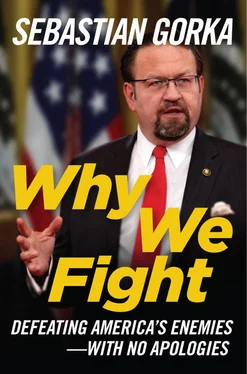Beginning with the defendant’s brief untitled essay for his honors world literature course, he describes a family history shaped by the need to leave Russia as a result of the putative persecution and violence meted out by the government against the Tsarnaev family for being Chechen Muslims—violence which in his world literature 2. essay he refers to as a “genocide” comparable to the Holocaust.
The defendant is very clear in his essay entitled A New Journey that his identity is that of being a Chechen, a people he typifies as being brave “fighters.” He tells of his anger at the cowardice of the Chechen relative he was living with after having moved to the US For the defendant, Chechens are “spartans” who are “undefeatable,” typified by Tsarnaev’s grandfather who fought the Russians and whom he calls a hero in his student questionnaire. In the same questionnaire he is adamant: “I am not an American.”
Then in his two papers on the book Ask Me No Questions by Marina Budhos, the defendant agrees with and amplifies the argument that the events of September 11, 2001, led to a “dehumanization” of Muslim immigrants in the US and the broader Muslim world, and in his essay The Predator War , he calls the US use of drones “basically murder” which could spark a “rebellious movement.”
Together these sentiments can be considered as the foundation for the beliefs that fed the defendant’s radicalization, his move to violent acts of terrorism, which culminated in Tsarnaev’s justification and explanation of his actions as provided in the narrative left in his hand in the boat where he was captured.
In that written evidence, the defendant is explicit in his praise and admiration for his brother who, through his violent acts in the preceding days, has achieved the highest level of heaven.
All the defendant says he is praying for now is for “Allah to make me a shahied” (sic), since his brother, who is now dead, has been rewarded with being amongst the most righteous in paradise, thanks to his status as a martyr to the faith.
Reprising the theme of persecution and genocide from his high school essays on the Chechen Muslims of Russia, the defendant accuses the US government of “killing our innocent civilians.” The defendant writes that as a Muslim he must respond in kind because that is “how Muhammad wanted it to be.” The Holy Warriors, the mujahideen must awaken, “fighting men who look into the barrel of your gun and see heaven.”
There is no doubt in the tone, or qualification of his approval of his brother’s terrorist acts and his desire to emulate them.
ASPECTS OF THE CASE RELEVANT TO THE SENTENCING PHASE
The Boston Marathon bombing represents a quintessentially Jihadist operation.
Although the narrative of the Jihadist Movement is one in which alleged oppression must be responded to by an elite class of warrior, those that chose to be mujahedeen or soldiers of Allah, the actions thus initiated do not lead to any form of conventional mode of warfare.
The nation-state members of the international system, America included, have no issue with recruiting, or even conscripting, young men and women to be soldiers risking their lives on the battlefield. Yet, when they do so, these individuals are bound by the international laws of war, as based upon the Hague and Geneva Conventions and Protocols which regulate armed conflict. The Global Jihadist Movement utterly rejects these requirements and limitations on the use of force and instead focuses on methods of attack and target-selection philosophies which aim to achieve the exact opposite of what the laws of war were intended to do, such as regulate the use of force and minimize non-combatant civilian casualties.
From S. K. Malik’s text The Quranic Concept of War to the first issue of the al-Qaeda magazine Inspire , with its instructions for how to turn a pressure cooker into an IED and maximize injuries by including extra shrapnel and placing the device in crowded public areas, the Jihadist Movement has encouraged the targeting of helpless men, women, and children, be they office workers in downtown Manhattan on 9/11, civilian commuters on British mass-transit on 7/7, or marathon runners on Boylston Street. In doing so, the Jihadist Movement follows an age-old tactic. Since it cannot directly defeat the un-Islamic state it ultimately wishes to destroy, it targets those members of its society that are unprotected and so generates fear amongst the broader population and thereby increases the pressure upon the political elite to acquiesce. This double dynamic of terrorist targeting can be represented visually as:

The objective of the terror attack is therefore to sow as great a fear as possible through the general population by using means that are wholly unpredictable, unregulated by the laws of war, and which engender a lack of trust in the capacity of the state to protect its citizens.
The more civilians that can be killed, maimed, or psychologically damaged for life, the more successful the Jihadi operation has been. A mass amateur sporting event in a major city fits this requirement perfectly. At the same time, should the operation lead to the deaths of the perpetrators, that is in fact also a positive result, since the Jihadist narrative guarantees salvation and eternal rewards for the martyred mujahedeen.
Dzhokhar Tsarnaev consumed a wealth of extremist material produced and propagated by the. This movement has as its objective the destruction of un-Islamic systems and the establishment of a theocratic caliphate. Its methodology calls for terrorist attacks against non-Muslims and provides extensive details on how to execute attacks which maximize civilian casualties.
Through his writings and actions, the defendant demonstrated not only a sympathy for the movement and its objectives, but a willingness to act as a “soldier of Allah” and kill or hurt as many people as possible in the hope of being rewarded as a martyr to Islam.
APPENDIX 3
Why Jefferson Really Had a Koran and What He and Adams Thought about Islam
When Keith Ellison, America’s first Muslim congressman, was sworn into office in 2007, the Fake News media made much of his having taken the oath on a copy of the Koran that belonged to Thomas Jefferson. The message was that we could all learn a lesson in broadmindedness from our multicultural third president.
Nothing could be farther from the truth.
Jefferson acquired a Koran to understand the Jihadi enemy our new nation faced in the form of the Barbary Pirates. He and his fellow Founding Father John Adams offered an assessment of that enemy in the following report to Secretary of State John Jay. And remember: He who can falsify the past owns your future.
American Commissioners to John Jay
Grosr. Square March 28th. 1786
Sir,
Soon after the arrival of Mr. J. in London, we had a conference with the Ambassador of Tripoli, at his House.
The amount of all the information we can obtain from him was that a perpetual peace was in all respects the most advisable, because a temporary treaty would leave room for increasing demands upon every renewal of it, and a stipulation for annual payments would be liable to failures of performance which would renew the war, repeat the negotiations and continually augment the claims of his nation and the difference of expence would by no means be adequate to the inconvenience, since 12,500 Guineas to his Constituents with 10 pr. Cent upon that sum for himself, must be paid if the treaty was made for only one year.
Читать дальше













